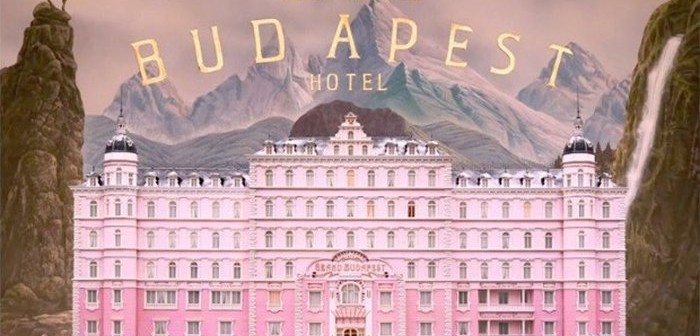Do you like slapstick films? How about an old world film that’s filled with crazy antics… or a nostalgic glance back at the way hotels operated in grand fashion? Or what about a farce: earnestly evoking quasi-tears in your eyes, sometimes? Well, Wes Anderson’s new film, “The Grand Budapest Hotel” could be one you should see.
I mostly savored it – but then I’m a sucker for humorous nonsensical movies that happen to be well directed and written with chaste abandonment. The story itself has a touching momentum. Jude Law– who plays a wandering writer– hears about some mysterious owner of a current third-rate hotel (but once Grand Budapest) and seeks an interview.
Thus begins the tale of what went on in the grand days of The Thirties– before war crushed life out of civility that flourished in hotels with multi-staffed servants, concierges and lobby boys. The owner himself, he relates, once was such a lobby boy and learned under that eminent concierge, M. Gustave, who is played by Ralph Fiennes. The lobby boy– Tony Revolori, in his lobby boy days– is suitably played in late years, by a sad, world-weary F. Murray Abraham.
The tale he tells starts with his first work day at the hotel… and how M. Gustave trains this lobby boy and confesses to his immense success in attracting rich widows to lodge at the Hotel and fall in love with him, hook, line and certainly sinker. The lobby boy takes it all in and becomes not only Gustave’s apprentice but eventually heir apparent.
The story takes off when one of his aged dames is found dead-having just willed him a priceless masterpiece and –not to spoil it for you- a heck of a lot more as well. But “when money’s involved, love flies out the window”; and the son of this dead women turns the guilt-light on M. Gustave as a suspect in what turns out to be murder.
Next follows the sort of run from “justice” that takes us from prison, to outlandish jail break-like one you have never witnessed before– to wilderness galloping-on to a sleigh ride that is over the top in thrills. The sheer quickness of every move that these two fellows make (the lobby boy clinging to Gustave through each adventure) is a tour de force in old fashioned film making.
Saoirse Ronan plays an artistic, quaint pastry chef and young love to the lobby boy. She lends a feint-hand, assisting the two men- when they need to escape– and guarding their masterpiece, too.
Finally, when the true villains have been found out and life returns to normalcy, Fate intervenes; and the death of M. Gustave has the lobby boy becoming the owner of the Hotel–where he had started out. But even with his newfound wealth he’s hardly the eager beaver that he once was. All of this, he tells the writer; and thus ends the tale of the (once) Grand Budapest Hotel.
They say if all you get out of a film is all you get in the film, that film’s a loser. I did get more: a nostalgic sadness– reflecting on how folks once showed a flair for travelling- how guests once stayed long at places like this Hotel that catered to their every whim- with no other sanction. They lived because they could.
As far as the film, itself, I felt it didn’t quite rate an eight-so it’s SEVEN: Because I thought in the end it didn’t quite live up to what The Grand Budapest Hotel stood for or had once meant.

